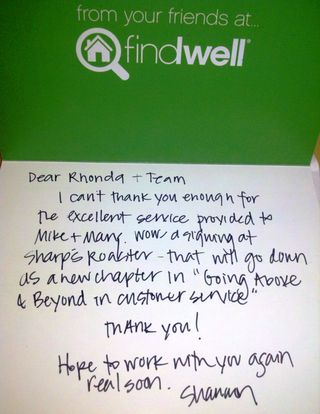 I’m noticing that more listing agents are performing, what I like to call, “sniff test” to check out the lender who has prepared the preapproval letter. By the way, I think this is an excellent idea. This is especially true if the listing agent is reviewing multiple offers, which is happening more in the greater Seattle area with non-distressed homes that are desirable and priced right.
I’m noticing that more listing agents are performing, what I like to call, “sniff test” to check out the lender who has prepared the preapproval letter. By the way, I think this is an excellent idea. This is especially true if the listing agent is reviewing multiple offers, which is happening more in the greater Seattle area with non-distressed homes that are desirable and priced right.
The sniff test is typically a phone call by the listing agent so they can get an idea about the mortgage originator. The listing agent should not ask personal information about the potential home buyer (such as credit scores or available funds).
When a listing agent contacts me, I know they’re sizing up:
- how quickly I returned their phone call or email
- how experienced I am at closing my clients specific mortgage program (for example, Fannie Mae Homepath, Freddie Mac Homesteps or FHA transactions)
- how long I’ve been in the mortgage industry (over 12 years at Mortgage Master Service Corporation)
- how quickly we can close by
- to learn more about our company (family owned and operated since 1976)
I’ve heard from many local real estate agents that they need to make sure the loan can actually close. Often times, a preapproval letter may not be worth more than the paper it’s written on if the mortgage originator has not done their homework with the actual preapproval. NOTE: you are NOT preapproved unless you have provided your mortgage originator your income and asset documentation.
I wrote about “investigating your preapproval letter” many years ago at Rain City Guide. The issue with preapproval letters then was probably that anybody and their brother was a mortgage originator back in 2007. Now there are far less mortgage originators however, if the mortgage originator works at a bank or credit union, they may still lack experience (they’re not required to be licensed). A licensed mortgage originator may be new to the industry as well. Some large internet mortgage companies have been hiring LO’s who can pass the national exam but still lack experience. There’s a big difference between being a good a passing exams and successfully closing loans.
While the number of mortgage originators is dramatically down, it’s still important to make sure your mortgage originator has the capability to see your transaction to closing. It may be a consideration to make sure your mortgage originator can pass a sniff test.


 I received this question a while ago from one of my subscribers:
I received this question a while ago from one of my subscribers:






Recent Comments